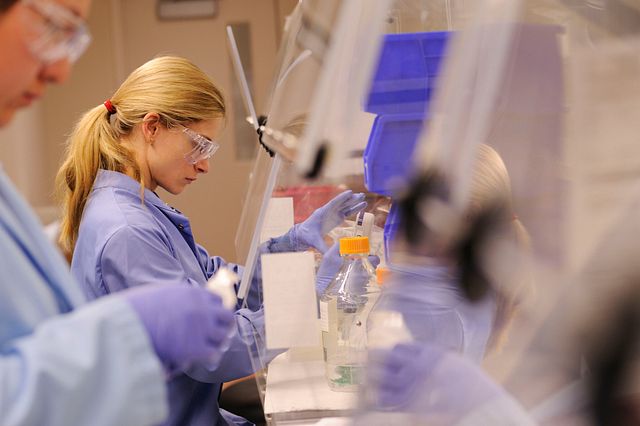Drug-developing companies regularly apply for an investigational new drug, new drug application, and abbreviated new drug applications to the US FDA. However, all these applications require fulfilling regulatory requirements. These requirements include bioavailability and bioequivalence studies, clinical pharmacology studies, pharmacokinetic evaluations, toxicology studies, biomarker validation studies, and preclinical and clinical trials. Each of these studies requires a robust and validated bioanalytical method.
Generally, drug discovery and development processes require bioanalytical methods developed in biological samples such as serum, plasma, blood, or urine. Hence, a lot depends on the successful development and validation of bioanalytical methods. Sometimes, assay development companies develop assays in complex matrices such as CSF for projects such as biomarker assay development and biomarker assay validation. The current article highlights why bioanalytical laboratory services such as NorthEast Bioanalytical Laboratories invest in bioanalytical assay development and validation.
Why should assay development companies invest in bioanalytical solutions?
Ligand binding assays and chromatographic assays can quantitate drugs and their metabolites, biomarkers, and therapeutic proteins in matrices such as serum, plasma, blood, and urine. The successful conduct of drug development studies requires validated bioanalytical methods providing reliable quantitative data in complex biological matrices. These validated methods generate crucial study data related to the efficacy and safety of a potential drug compound.
The goal of assay development is to design and define primary assay requirements, including operational conditions, assay limitations, and suitability for the intended purpose. A thoroughly developed bioanalytical assay ensures a smooth method validation process. However, before beginning assay development, one must conduct a detailed investigation of the analyte of interest, including in-vitro and in-vivo metabolism, physicochemical properties, protein binding, etc. Assay development focuses more on detecting and extracting the analyte of interest from the biological matrix.
On the other hand, assay validation addresses essential issues related to sensitivity, specificity, accuracy, precision, stability, collection, and handling of the analyte. Bioanalytical assay validation proves that the developed method is suitable for analyzing the analyte in the given biological matrix. The extent of assay validation depends on the intended purpose of the bioanalytical assay. In turn, the purpose of the assay depends on fit-for-purpose criteria. A new drug entity, biomarkers, or metabolites will require full validation. Besides, any modifications made to an existing method will also need full assay validation.
Assay validation includes defining the protocol through standard operating procedures. This protocol incorporates a detailed description of the assay parameters, study matrix, experimental conditions, and sample collection and handling. Notably, each target analyte should be validated in the study matrix. Any conclusions based on assay parameters and results must be documented and presented during assay validation.
Also Read: How to Select The Best Bioanalytical Solutions Lab That Fits Your Research Requirements?
Bioanalytical assays supporting regulatory decisions in drug discovery and development projects require thoroughly developed and validated methods. The bioanalytical laboratory services conducting these regulatory studies must be GLP compliant and adhere to 21 CFR Part 58. Failing to meet any of these requirements can lead to the collapse of drug development initiatives. Hence, investing in bioanalytical assay development and validation helps avoid delays and accelerate drug development timelines.





